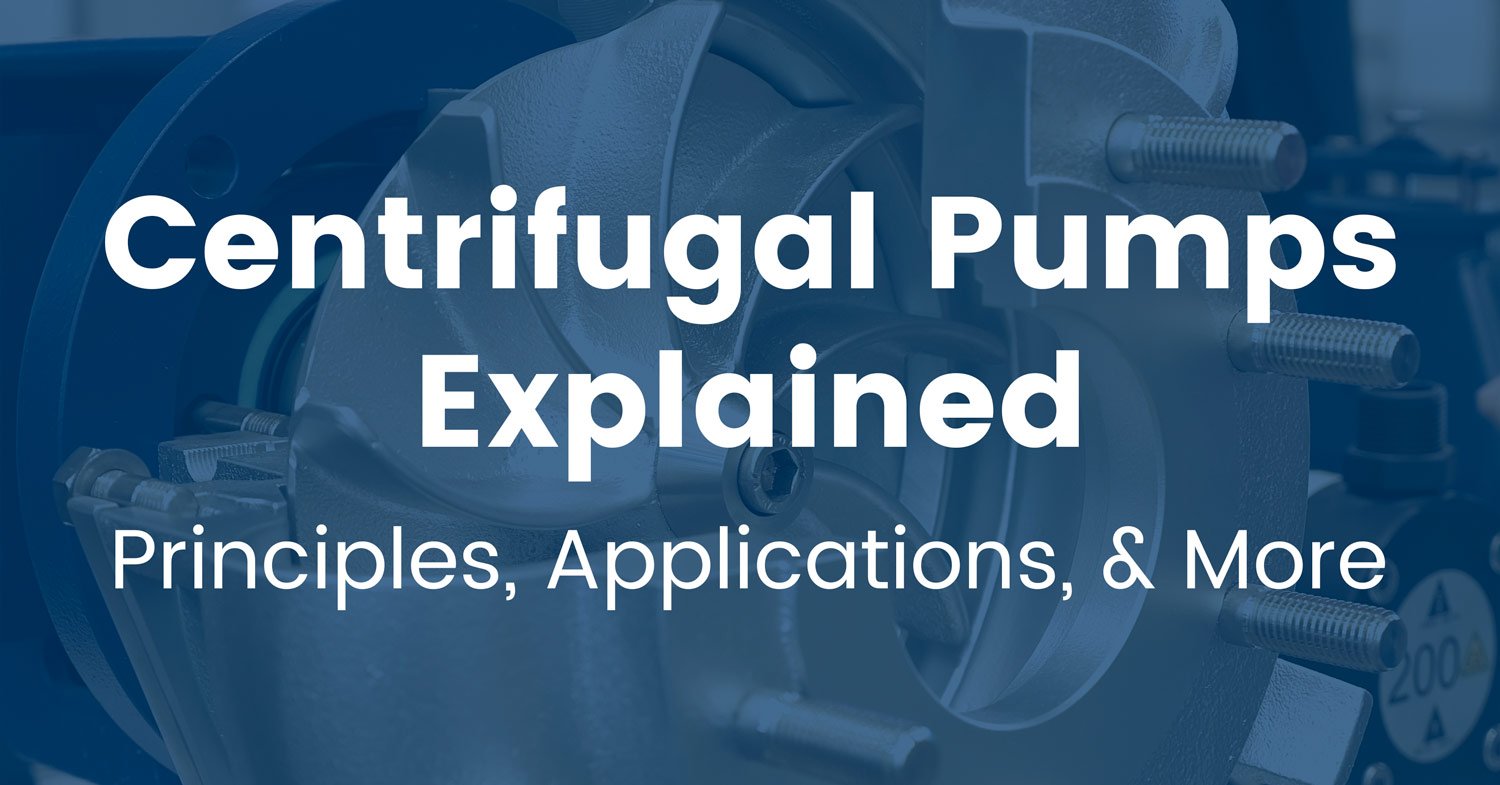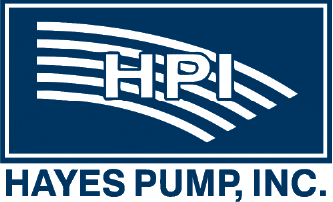Centrifugal Pumps Explained

Centrifugal pumps are among the most widely used mechanical devices for fluid movement in diverse industries. If you're evaluating pump solutions for your operation, understanding the basics of centrifugal pumps, their applications, and considerations for selection can help you make an informed decision.
This guide will answer some common questions about centrifugal pumps, their working principle, and how they can benefit your system.
What Is a Centrifugal Pump?
A centrifugal pump is a mechanical device designed to move low-viscosity fluids by converting mechanical energy into hydraulic energy using centrifugal force. This transformation of energy occurs through the pump's impeller, which increases the fluid’s velocity and pressure, channeling it toward the outlet.
What Makes Centrifugal Pumps Popular?
Due to their efficiency and simplicity, centrifugal pumps are widely used in sectors like power generation, mining, agriculture, oil & gas, and pharmaceutical manufacturing. These pumps offer high flow rates, adjustable performance across varying conditions, and ease of maintenance, making them an excellent choice for operations requiring reliable fluid transfer.
How Does a Centrifugal Pump Work?
A centrifugal pump operates using a rotating component called the impeller. Here's how it works step-by-step:
- Fluid Entry – The fluid enters the pump through the center of the impeller, known as the “eye.”
- Energy Transfer – Power from a motor or external energy source rotates the impeller, creating centrifugal force.
- Velocity Increase – The impeller's curved vanes push the fluid outward, increasing its velocity.
- Pressure Generation – The high-velocity fluid continues into the pump casing, where stationary volutes convert velocity into pressure.
- Discharge – The pressurized fluid exits the pump through the outlet.
For systems requiring higher pressures, multi-stage centrifugal pumps—with multiple impellers and volutes in series—offer increased performance.
What Are the Key Applications of Centrifugal Pumps?
Centrifugal pumps are versatile and adaptable, suitable for a wide range of applications. Here are some common use cases:
Industrial Applications
- Chemical and Pharmaceutical
These pumps handle solvents, acids, and other chemicals, as well as transfer sensitive liquids such as lactose or drugs in pharmaceutical processes. - Oil & Gas
Centrifugal pumps transport crude oil and slurry, as well as support processes such as cooling and dewatering. - HVAC Systems
Essential for maintaining efficient heating, ventilation, and cooling systems.
Other Use Cases
- Domestic and industrial water supply
- Irrigation and drainage in agriculture
- Sewage and slurry pumping
- Fire protection sprinkler systems
- Food and beverage production
Centrifugal pumps are particularly effective for fluids with low to medium viscosities, making them ideal for most fluid transportation needs.
How Do You Choose the Right Centrifugal Pump?
When evaluating centrifugal pumps, several factors influence performance and suitability for your operations.
Q1: What Types of Fluids Can a Centrifugal Pump Handle?
Centrifugal pumps are best suited for low-viscosity fluids, such as water, oils, and chemicals. High-viscosity fluids may require excessive energy to pump efficiently, making these pumps less effective.
Q2: Does My System Require Priming?
Yes, centrifugal pumps often require priming to function effectively. This initial step ensures the pump casing is filled with fluid and prevents issues like cavitation.
Q3: What Is NPSH, and Why Is It Important?
Net Positive Suction Head (NPSH) is the pressure required at the suction end of a pump to maintain smooth flow and prevent cavitation. You can use NPSH data, available in pump performance curves, to select a pump that avoids damaging cavitation.
Q4: Should I Choose a Single-Stage or Multi-Stage Pump?
- Single-Stage Pumps are suitable for moderate pressure needs, such as supplying water to residential buildings or irrigation systems.
- Multi-Stage Pumps are ideal for demanding scenarios like transporting fluids over long distances, supporting high-rise buildings, or maintaining precise flow rates in industrial processes.
What Factors Impact Centrifugal Pump Efficiency?
Achieving and maintaining high efficiency in centrifugal pumps depends on the following considerations:
- Fluid Dynamics – Align the pump design with fluid properties like viscosity, gravity, and density.
- Pressure Stability – Ensure consistent inlet pressure to minimize variable flow rates or system interruptions.
- Cavitation Prevention – Select a pump with NPSH metrics suitable for your operational pressures.
- System Design – Use appropriate piping configurations, such as straight and short suction lines, to optimize flow.
Frequently Asked Questions About Centrifugal Pumps
Q1: Can centrifugal pumps handle mixed-phase fluids (liquid and gas)?
A1: Centrifugal pumps are generally not suitable for mixed-phase fluids, as air or gas bubbles can disrupt flow and damage components over time.
Q2: How do centrifugal pumps differ from positive displacement pumps?
A2: While centrifugal pumps rely on dynamic forces to build pressure, positive displacement pumps trap fixed amounts of fluid and mechanically force it through a system, making them better for high-viscosity or precise flow requirements.
Q3: Can centrifugal pumps operate at high temperatures?
A3: Many centrifugal pumps can handle high temperatures with the right material selection and adequate cooling mechanisms.
Q4: How do I maintain a centrifugal pump?
A4: Regular checks for wear, proper alignment of components, and cleaning of filters or volutes ensure long-lasting performance.
Why Choose Hayes Pump for Centrifugal Pumps?
At Hayes Pump, we understand that choosing the right pump requires expertise and precision. With our extensive portfolio of centrifugal pumps and other industrial solutions, we provide products tailored to your unique needs.
- Expert Guidance – Our engineers can help you assess your system's requirements, including flow rates and pressure needs.
- Trusted Brands – We represent leading manufacturers known for quality and innovation.
- Comprehensive Support – From selection to installation and maintenance, Hayes Pump is with you every step of the way.
Get in touch with us today to discuss your project or learn more about centrifugal pumps on our blog!




